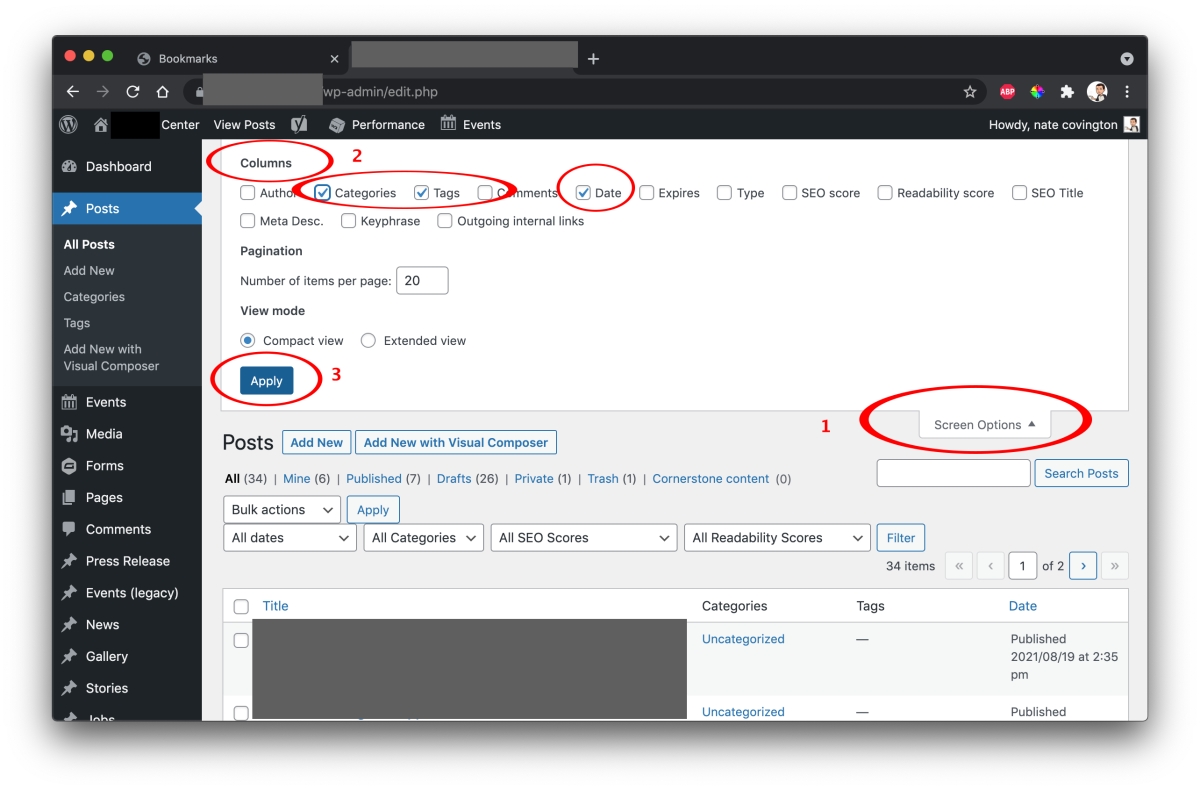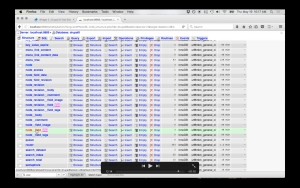Wordpress
How to declutter Wordpress admin dashboard
Do I really need to patch my Wordpress (Joomla, Drupal) site?
Question:
Our site has been up and running with out any problems since for years! Do I really need to patch my Wordpress (Joomla, Drupal) site?
Answer:
I agree! For over 10 years, many people have been getting away without patching their websites, they've been lucky!
Todays' article includes a screenshot of a typical Wordpress site. This person hired someone else to build their Wordpress site, and it was never patched. Their site was built in 2017 and hacked in 2018 & 2019...
Squarespace vs. Open Source (Wordpress, Drupal, Joomla)
Squarespace Review:
You may have noticed Squarespace ran a few ads in this year’s Super Bowl. It was quite a surprise to me. In the last month, I’ve had one client switch their site over to Squarespace (they’ll be back), and a new lead come to me, flat-out asking me to ‘rescue’ them from the Squarespace platform. For these reasons, I decided to share a few of my thoughts.
Warning: This is another article in my “Why I Love Open Source Software” series.
Open Source CMS Comparison: Database Tables (Video)
I put this video together to discuss some of the similarities and differences between Joomla, Wordpress, and Drupal. In particular, I set up some sample content in a "plain vanilla" installation of each platform, and examine the underlying database structure. Too frequently, I find myself reading peoples' opinions about which of these platforms is better than the other, and I can't help but think to myself, "You're just saying that because you learned (insert platform name here) first."
If you already have a site built using one of these platforms and want to hire me, I'm happy to play the role of consultant. If you don't have a site and want to engage me to design & build it, I can do that, too. (I generally don't find the database structure by itself to be enough of a reason to switch from one platform to the other, but that's also an option if sufficient reasons exist.) Get in touch today!
Tightening the screws: is your site fast enough?
Building optimized sites has always been a major part of our strategy: they are easier to maintain, easier to upgrade, and they load more quickly. I have never built a site using only Flash, and have always built sites using HTML-and-CSS based navigation menus. They are search engine friendly and easy to expand or rearrange.
With that in mind, I have recently come up with a few other ways to speed things up. A faster site will generally rank better in the search engines, plus it will have less people abandoning the site while waiting for it to load.
CMS Review - Joomla vs Drupal vs Wordpress vs ExpressionEngine - You Really Can't Go Wrong
How to maintain control of your web site
Domain Registration -> Hosting & Email -> Framework, Content, Updates
As a business owner, the thought of not having control of your website is is most likely frightful. I've experienced a handful of situations where a client hired a different web developer previously, hire me to re-engineer the site, then come to find out that their prior developer has more control of the site than they do...
Content Management System General Background Info
When it comes to building your company's web site, there are two basic ways to build it. The first method is to use a program like Dreamweaver to build the template, menu, and pages using HTML. Each page becomes a separate HTML file, and all of the HTML files are interconnected. For basic sites, this method is fine.
Update August 18, 2022: Editing a site by hand in HTML is no longer acceptable!
Design & Development
Wordpress, Drupal, Joomla
New custom websites
Bespoke themes and extensions
Redesigns, upgrades, migrations
Optimization & SEO
Let us optimize and manage your overall online presence. We offer full service monthly SEO as well as one-time projects.
Maintenance, Patching
White glove monthly backups, security updates, maintenance and testing for your Wordpress, Drupal, or Joomla site.
Email Newsletter
Bring your web & marketing performance to the next level: monthly blog post roundup via email.






